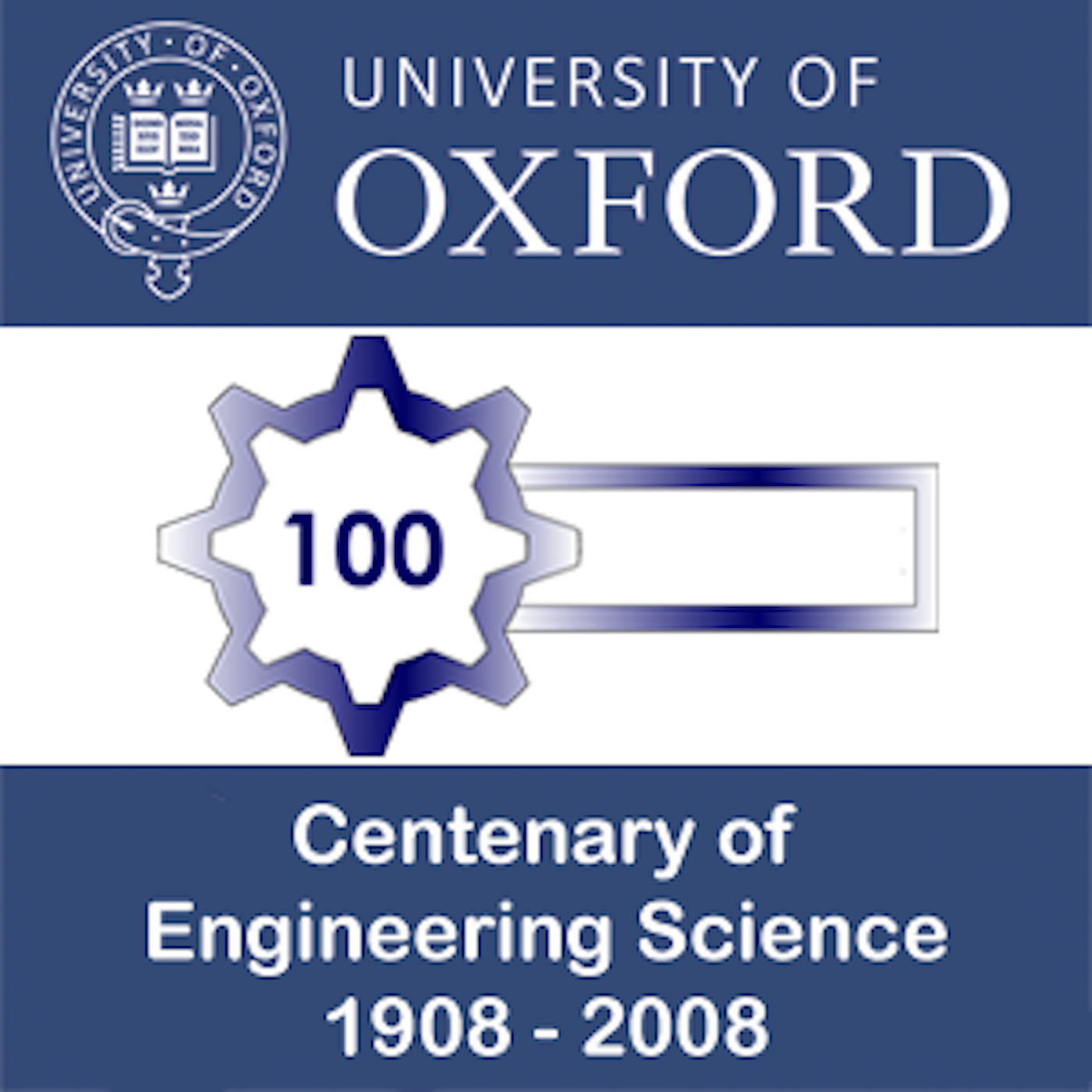Episodes
Professor Roland Clift, CBE on "Engineering for Sustainable Development". The term "sustainable development" embodies an important ethical principle which includes the concept of responsibility to present and future generations. This has significance not just for the practice of engineering but for the role of the individual engineer. This talk explored, using specific cases, how sustainable development affects the way in which the technical skills of the engineer should be deployed.
Published 08/19/08
Professor Peter Dobson on "Innovation, Spin-out Companies and Nanotechnology". Innovation is what happens between the invention stage and the generation of revenue arising from the invention. For a knowledge economy such as in the UK, it is imperative that we can optimize innovation. At Begbroke we have been trying to understand the dynamics and barriers to innovation by creating a unique Science Park where high technology spin-off companies work on the same site as interdisciplinary...
Published 08/12/08
Professor Carlos Ruiz on "Designing for Strength: A Century of Solid Mechanics Research in Oxford". In 1908 C.W. Jenkin was appointed to the first chair of Engineering Science in Oxford University. He followed in the tradition, established by Hooke, to emphasise the practical application of research to the design of machines and structures. Thanks to his foresight, solid mechanics in Oxford has a strong scientific basis, combining theoretical formulation and exact experimental work to provide...
Published 08/05/08
Lord Browne of Madingley, President of the Royal Academy of Engineering "On being an engineer". As President of The Royal Academy of Engineering, Lord Browne's prime goal during his five years in office is 'to move engineering towards the centre of society'. In his opinion the words 'engineers design the future' have more resonance today than ever before. Drawing on global experience of the energy business, industry and political life Lord Browne reflected on what being an engineer means in...
Published 06/13/08
Dr Alastair Howatson on the "History of the Department of Engineering Science". The lecture inclined to the earlier days of Oxford engineering rather than the more familiar recent history. The University produced engineers, not always so-called, long before 1908 and engineering was taught from 1886 although there was no formal school. Jenkin, the first professor, was elected in 1908 after years of frustrated attempts to found a chair; he combined high mathematical qualifications with years of...
Published 06/10/08
Professor Lionel Tarassenko on "Advances in Biomedical Engineering". Biomedical Engineering is a relatively new subject but advances in body scanners (from CT to MRI) in the last 2 decades have had a major impact on the practice of medicine. Oxford engineers have made significant contributions to the development of medical imaging and in other areas of biomedical engineering also, for example in artificial knees and needle-free injection of drugs and vaccines. The lecture reviewed Oxford's...
Published 06/10/08
Professor Guy Houlsby on "An Early Structural Engineering Problem: the Oxford Connection". The lecture followed the history of a structure often known as a "Serlio Frame" from its earliest mention (around 1270) to modern times. The structure is an intriguing "reciprocal frame" that is able to span a space with beams that are all shorter than the span required. The rare examples of construction of the frame were discussed (including one in Oxford).
Published 06/10/08
Lieutenant Colonel (Retd) Christopher Pugsley on "Engineers at War". Many of the most prominent man-made historical features in the landscape are the work of military engineers. Hadrian's Wall, Windsor Castle, the coastal fortifications, even the Albert Hall, all testify to the skills of the military engineer. Military engineers throughout history have always had to marry theory and genius to the practical skills of making the concept work in crisis on the ground; no small accomplishment.
Published 06/10/08
Dr Jane Smallman on "Hydraulic Engineering - How We Use Hydraulics to Solve Real Life Engineering Problems". Hydraulics is used extensively to provide solutions to engineering problems. In this presentation the focus was on civil and environmental engineering projects in the maritime sector. A number of illustrations were given of the way in which research is developed into tools that are used to solve practical problems.
Published 06/10/08
Dr Allan Chapman on '"The Greatest Mechanick of this Present Age": Dr Robert Hooke and the Origins of Engineering Science in Oxford'. "When his Oxford friend, John Aubrey, described Hooke as the "Greatest Mechanick" of the Age, he acknowledged Hooke's genius as an Experimentalist. For Hooke the whole of nature was a great machine or engine in motion, the deepest truths of which could be uncovered by means of ingeniously-contrived instruments. For in the 1650s, Oxford's "Ingeniosi" of the...
Published 06/10/08
Professor Martin Oldfield on 'Keep it cool! 38 years of gas-turbine research'. Unusual short-duration wind-tunnels have been used to research, in a split second, results that normally need expensive hours. The work of one of the most successful thermo-fluid laboratories over the years was illustrated in Professor Oldfield's lecture.
Published 06/10/08
Patron of the Centenary, Lord Jenkin of Roding's inaugural Centenary lecture. Lord Jenkin of Roding, the grandson of the first Professor of Engineering Science at Oxford University, Frewen Jenkin, formally launched Oxford's Centenary of Engineering Science on 15th September 2007. In his introduction to The Jenkin Lecture Lord Roding, Patron of the Centenary, shared his recollections of his grandfather Frewen Jenkin - who was elected Oxford's first Professor of Engineering Science in 1908.
Published 06/10/08


